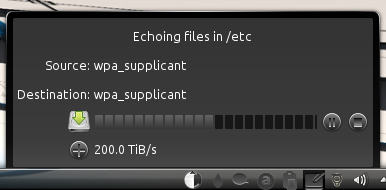Since I just had to open an eBay return request for a perfect-looking Super Nintendo cartridge that had been ruined by a leaky battery, I decided to do a thorough inspection of all of my cartridges to determine both the state of their batteries and how to best store them to limit the damage a leak could cause.
In doing so, I’ve discovered that, when their cartridges have batteries, Nintendo seems to have standardized on putting them in the top-right corner of the cartridge (when looking at the front label).
I’ve confirmed this for the following types of PCBs in my collection:
- Super Nintendo cartridges with support for saved data (as opposed to password systems, which require no battery) but no add-on DSPs
- Stunt Race FX (which I’m assuming to be typical for SuperFX-based SNES games)
- Grey (GB), Black (GB/GBC), and Clear (GBC-only) Gameboy games with save support
- The handful of Gameboy Advance games which don’t use EEPROM or Flash memory
- The handful of Nintendo 64 cartridges which rely on battery-backed RAM for saving
Given this research, my advice for people who can’t solder is simple: Store your cartridges is one of these three orientations:
- On their side (ie. like books in a shelf) with the edge labels visible and the front label facing to the left. (This is a good choice for Gameboy games in clear clamshell cases, as well as loose SNES and N64 cartridges.)
- Vertical, with the label upside down (This is what happens naturally if you modify a Nintendo DS keep case so that a classic Gameboy game can fit into the GBA game slot.)
If you must store your games lying flat, you want any leaking chemicals to drip away from the circuitboard, so…
- Store SNES and N64 games face-up (the battery is on the rearward side of the circuitboard)
- Store Gameboy games face-down (the circuitboard sits flat against the back of the shell with all the components in the gap between it and the front cover.)
This will ensure that, if the batteries do leak enough to flow beyond the surface of the battery, gravity will pull the corrosive compounds in the direction which avoids as much important stuff as possible.
For SNES and N64 cartridges, it will provide a clear path to the edge of the circuitboard with nothing but the battery terminals and factory test pads in the way.
For battery-backed GBA cartridges like Wario Land 4, which put the battery right on top of the mask ROM inside a very cramped cartridge, the same basic rules apply, but it’s more important that the cartridge not lie diagonally.
(If the GBA cartridge is stored face-up or too far off a 90° angle, “follow gravity around the curve of the battery, then fall straight down from the lowest point” could cause corrosive fluid to land on the ROM or the nearby capacitor, rather than the empty bits of the circuitboard near the edge.)
P.S. I’ve also discovered that there’s no obvious pattern to which N64 cartridges have batteries. Zelda: Ocarina of Time, Super Smash Bros., and Harvest Moon 64 have them, but everything else in my collection, earlier or later, same company or different, uses batteryless storage.



